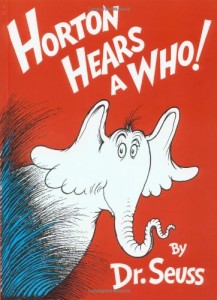by Naomi L. | November 29, 2013 | J.C. Wolfe's Writing, Poetry |
I’m thankful for my family,
Whose love has kept me strong.
I’m thankful for the friends I’ve made
To keep my whole life long.
I’m thankful for the books I read
That take me far away.
They show me distant worlds that I
Can visit any day.
I’m thankful for the gift I have
Of telling stories too.
To build worlds out of only words
Is such a dream come true.
I’m thankful for the readers who
Have put their faith in me
To turn out first-rate stories they
Can all enjoy for free.
I’m thankful for the writers who
I’ve met through blogs their own.
Their strong support has shown me that
I’m really not alone.
But most of all, I’m thankful for
The love I’ve found in art
For readers, writers, books and words
That truly touch my heart.
So on this day of giving thanks,
I’d simply like to say:
I’m thankful for each one of you!
Happy Thanksgiving Day!
Happy Thanksgiving to all my family and friends, including you fellow readers and writers! I’m grateful to have you in my life. God bless you all!
by Naomi L. | November 27, 2013 | Blog, Creative Writing, Off The Bookshelf |
Since last week’s post was dedicated to the amazing children’s author Dr. Seuss, I wanted to follow it up with a post about one of his many wonderful books. However, the more I thought about it, the more I realized how hard it would be to choose which book to feature; there are so many good stories by Seuss that it’s almost impossible to choose just one favorite. Eventually, though, I settled on one of the books I find most inspiring: Horton Hears a Who!

Horton Hears a Who!, by Dr. Seuss
Summary
First published in 1954 by Random House, Horton Hears a Who! tells the story of Horton the Elephant, a resident of the Jungle of Nool, and his quest to help the Whos. After hearing a small yelp coming seemingly out of thin air, Horton discovers the microscopic civilization of Whoville living on a speck of dust. Deciding that every life has value regardless of size, he places the speck on a clover and sets out to find a safe location to keep the Whos out of harm’s way. Unfortunately, being the only one with ears keen enough to hear these tiny people, the elephant has trouble convincing the other jungle residents that Whoville exists, and when they decide to put an end to his crazy antics by destroying the clover, Horton must struggle to save his new friends and teach the people of the Jungle of Nool an important lesson: “a person’s a person, no matter how small”.
Review
Horton the Elephant is one of my favorite Dr. Seuss characters, mostly for his kindness and integrity. He stays true to his word no matter what; as seen in the previous story featuring his character – Horton Hatches the Egg – when Horton makes a promise, he has every intention of seeing it through, and that makes him one of the best role models in Seuss’s stories.
I meant what I said
And I said what I meant.
An elephant’s faithful,
One hundred per cent!
– Horton the Elephant, Horton Hatches the Egg (Dr. Seuss, 1954)
Like many of Dr. Seuss’s books, Horton Hears a Who! is more than just a children’s story. It also teaches good lessons, such as the importance of open-mindedness and understanding the issues of isolationism. Horton’s biggest challenge is convincing his peers that something they can’t perceive or fathom actually exists – which, when you think about it, is a story that’s only too familiar in real life. But what’s really interesting about this book is the history behind its lessons. Once strongly opposed to Japan, the author changed his opinions after World War II, and used this book as an analogy for the American post-war occupation, even dedicating the book to a Japanese friend. Overall, the metaphor of two worlds overlapping creates a beautiful message, one that children can certainly understand and appreciate.
Horton Hears a Who! is one of Seuss’s most notable works. From the children’s book to the TV special to the 2008 full-length feature film (which I thoroughly enjoyed; I swear the “We are here!” scene gives me chills every time I watch it), this story is wonderfully imaginative and fun for readers and viewers of all ages. Though they may have been written for a young audience, no one is too old to enjoy the stories of the great Dr. Seuss!
Inspiration
What I always found inspiring about this book was the main character’s determination to help an entire community that he couldn’t even see. I admired Horton’s devotion to his cause, and the respect he had for all forms of life made him a truly lovable hero. With colorful characters, adventure and a heartwarming message, Horton Hears a Who! is one of my favorite Dr. Seuss stories, and one I’ll definitely enjoy for the rest of my life.
by Naomi L. | November 25, 2013 | Blog, Word of the Week |
Word: ephemeral
Pronunciation: ə-FE-m(ə)rəl
Part of Speech: adjective
Definition: lasting for a very short time
Source: Oxford Dictionaries
I love this word. I’m not even entirely sure why, but I do. It was one of those words that I had to look up as soon as I heard it, and which I had to start using as soon as I knew what it meant. I think it sounds very poetic, and when used well, it can really add to the flow of a story. After all, what’s the fun of calling something “short-lived” when you can use a more artistic-sounding word instead?
That which is “ephemeral” is fleeting, lasting only a short time. The word comes from the Greek adjective ephemeros, which literally means “for one day”, as it’s comprised of the roots epi “on” and hemera “day”. This is also the origin of the English noun “ephemeron” (best known by its plural form, “ephemera”), referring to things that exist for only a short period of time.
Interestingly, this word is especially meaningful to me because of my background in Ecology. Biologically, “ephemeral” is used to refer to species (particularly plants) with a very short life cycle, and can also function as a noun to indicate these types of organisms. As for its general uses, “ephemeral” falls close to the extreme of the “temporary” spectrum – just above “evanescent”, which indicates what vanishes almost as soon as it appears. So if you like to describe things that last about a day or a similarly short period of time, this is a good word to know. In my opinion, a great way to add a poetic touch to your stories is by writing about the “ephemeral” things in life!
What are your thoughts on this word? Any suggestions for future “Word of the Week” featured words?
by Naomi L. | November 25, 2013 | Blog, Journal |
So I was sorting through my blog archive the other day when my eye was drawn to the post count at the top of the page. That’s when I noticed I was getting close to a milestone: one hundred posts! When I counted the ones I had already scheduled, I realized the hundredth would fall on a Monday, which fits perfectly into my Journal posting schedule. So here it is: my 100th blog post!
Wow, one hundred posts? Congratulations!
Thank you! I’m actually amazed that I’ve even made it this far. I wasn’t sure if I’d be able to keep up blogging consistently for this long, but apparently I have, so yay me!
Now you’re probably wondering what I had planned for this special post. Honestly, I didn’t really intend to write anything long; I just wanted to acknowledge the milestone, and take the opportunity to thank all my regular readers for their support. Special thanks go out to those who have been reading my blog since Day One (you know who you are)! I’ve learned quite a bit since I started, my writing has been steadily evolving, and I’ve met some very interesting people in the blogosphere. But I’ll save the really special post for my blog’s first birthday. For now, I’d just like to say: thank you, dear readers! You’re all awesome!
Hooray for 100 blog posts! Here’s to another hundred, and many more!

by Naomi L. | November 22, 2013 | Flash Fiction, J.C. Wolfe's Writing |
(What If? Exercise: Read the description here.)
I was a fool to think we could slay it.
She trusted me with her life, and I failed.
I was so sure we had it cornered.
I heard the growling before she did.
But she saw the teeth first.
I tried to save her.
It was too fast.
I blacked out.
She vanished.
Forever.
This piece is based on What If? Exercise 93: “Ten to One”. The exercise is to write a 55-word story in which the first sentence has ten words, the second has nine, etc., until the last sentence has only one word. The objective is to show that precision and thrift in writing can produce surprisingly powerful results. I hope you enjoy what I’ve written. Thanks for reading!
Back to the story





Recent Comments